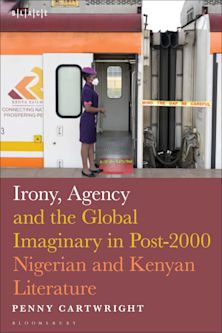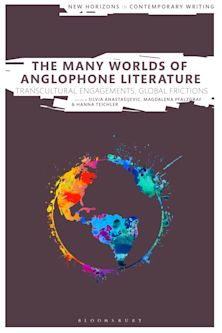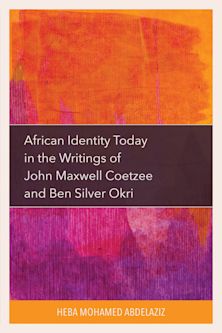- Home
- ACADEMIC
- Literary Studies
- African Literature
- Lupenga Mphande
Lupenga Mphande
Eco-Critical Poet and Political Activist
Lupenga Mphande
Eco-Critical Poet and Political Activist
You must sign in to add this item to your wishlist. Please sign in or create an account
Description
Dike Okoro analyzes the various manifestations of ecocriticism and political activism in the poetry of Lupenga Mphande, who is arguably Africa’s first poet to explore the existence of territorial cults and natural shrines. This book is recommended for students and scholars seeking new interpretations of the African experience in contemporary world literature.
Table of Contents
Chapter 2: Visionary Art in the Poetry of Lupenga Mphande
Chapter 3: Human Rights and Environment in Modern African Poetry
Chapter 4: Symbolism, Mythology, and Sacred Space: A Study of the Poetry of Lupenga Mphande
Chapter 5: Nature and Environmental Anxieties in the Poetry of Lupenga Mphande
Chapter 6: The Depiction of Prison Life in African Literature: Chimamanda Ngozi Adichie, Lupenga Mphande, and Others
Chapter 7: Elegies in the Poetry of Lupenga Mphande
Chapter 8: Nostalgia As A Representative Character in the Poetry of Lupenga Mphande
Chapter 9: The African Poet and Political Activism: Lupenga Mphande
Chapter 10: The Depiction of Children and Life Lessons in Mphande's Poetry
Chapter 11: Nelson Mandela's Legacy
Chapter 12: Lupenga Mphande and His Generation: Malawian Poets
Chapter 13: Love Poems and Meanings: A Study of Lupenga Mphande's Poetry
Chapter 14: Social Justice and Environmental Criticism in the
Product details
| Published | Apr 26 2021 |
|---|---|
| Format | Ebook (PDF) |
| Edition | 1st |
| Extent | 244 |
| ISBN | 9781978780309 |
| Imprint | Lexington Books |
| Series | Ecocritical Theory and Practice |
| Publisher | Bloomsbury Publishing |
About the contributors
Reviews
-
Dike Okoro’s Lupenga Mphande: Eco-Critical Poet and Political Activist is a groundbreaking critical study of African poetry from a fresh perspective that brings us in conversation with a poet we otherwise would not have understood. Okoro’s expertise in approaching Mphande’s poetry—through both interviews and a comparative study of the poet and the works of his contemporaries—guides the reader to an understanding of one of Africa’s finest poets who deserves more attention than has been given him through the years. This book opens us up to the diverse themes of Mphande’s poetics, not often a subject of conversation in the study of African poetry.
Patricia Jabbeh Wesley, Penn State University Altoona
-
African poetry is one of the most neglected areas of scholarship on the continent and among Africans in the diaspora. This is not for a lack of good material. Whatever the reason for this oversight, we are happy that Okoro has undertaken a giant step toward remedying the condition. His scholarship on the poetry of Lupenga Mphande, one of the most profound and environmentally conscious of African poets, is more than welcome. Mphande is important not only as a fine poet but especially for bringing much-needed attention to social and environmental justice and human rights in African scholarship. This bookis a welcome addition to the scholarship on African poetry and environmental justice. Students of environmental justice—and everyone else—will be delighted to read it.
Chielozona Eze, Northeastern Illinois University; author of Justice and Human Rights in the African Imagination: We, Too, Are Humans

ONLINE RESOURCES
Bloomsbury Collections
This book is available on Bloomsbury Collections where your library has access.



































